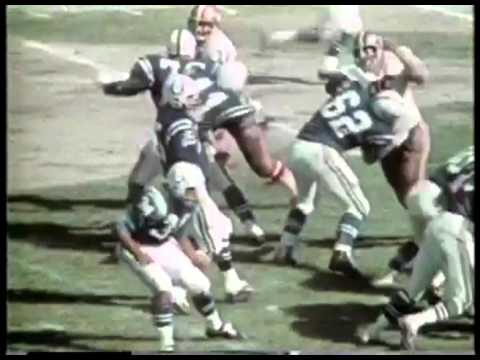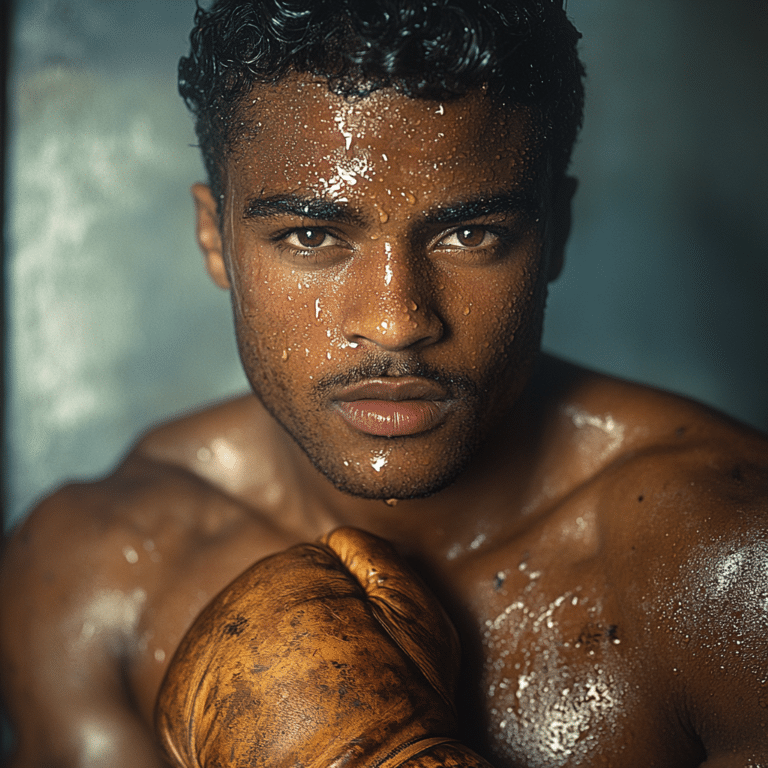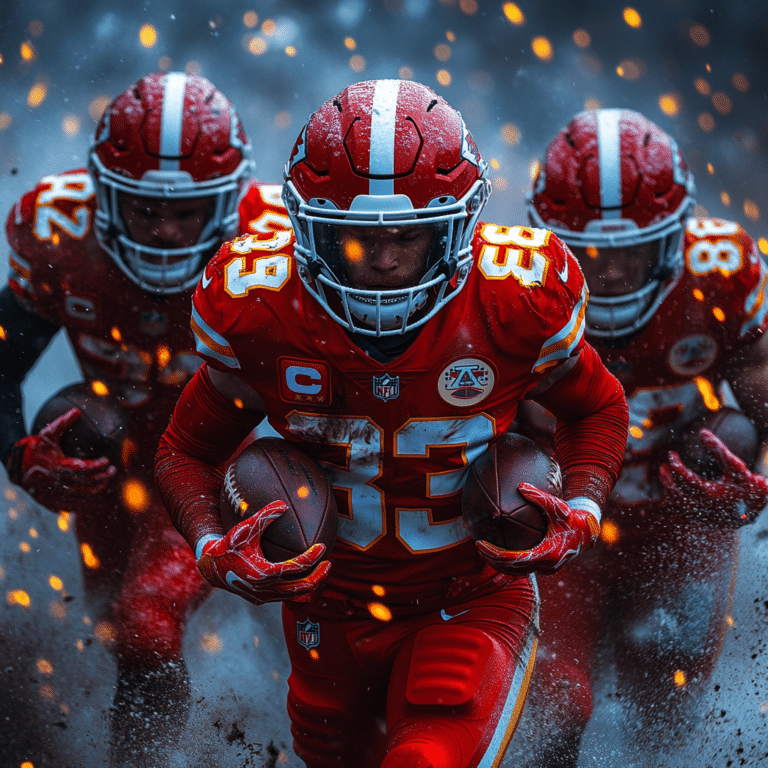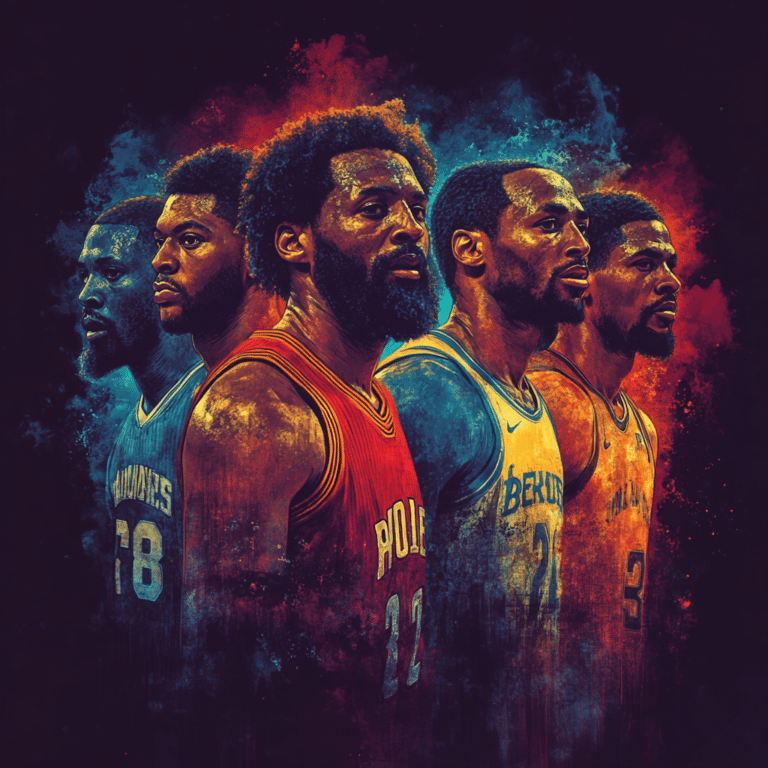From the depths of gridiron history arises the tale of Earl Morrall, a name not immediately familiar to the casual fan but one that conveys an epic odyssey of silent sacrifice and unheralded virtue in the annals of the National Football League. Morrall’s journey from journeyman to steering the only perfect season in NFL history and his posthumous diagnosis of severe CTE casts a complex, poignant shadow on his legacy.

The Unheralded Architect: Earl Morrall’s Role in the 1972 Miami Dolphins
Earl Morrall’s journey through the NFL was nothing short of a rollercoaster ride. A quintessential journeyman, Morrall had an unpredictable career spun across several teams before his unexpected call to greatness with the 1972 Miami Dolphins. With years of experience tucked under his belt, this seasoned quarterback was seen largely as a reliable backup, an insurance policy for the unforeseen.
Unexpected Hero: Then came the unforeseen during the 1972 season, when starting quarterback Bob Griese was sidelined by injury. Morrall stepped up, and boy, did he deliver! The man, once a shadow figure on the bench, orchestrated an improbable streak, guiding the Dolphins gracefully through the turbulent waters of an NFL season that demanded nothing short of perfection.
A Guiding Force: Winning all eleven games in Griese’s absence, Morrall’s impeccable run not only kept the Dolphins’ hopes alive but showcased his capability to lead a talented squad to unprecedented heights with a passer rating that, while not dazzling by today’s standards, was effective enough to dominate during that era.
Respect in the Locker Room: Within the team dynamics, Morrall was revered for being a stabilizing force. His teammates resonated with his quiet charisma and unwavering calmness under pressure; coaches praised his professionalism. In the hallowed halls of the Dolphins’ glory, Earl Morrall’s contributions glimmered with an understated brilliance.

The Silent Sacrifice: Morrall’s Unflinching Team Spirit
Earl Morrall was the embodiment of a team-first philosophy. His character, far from the brash bravado that often escorts star athletes, was woven from the far humbler fabric of resilience and dependability.
Replaced, yet Undeterred: As the lights dimmed and the curtains rose for the 1972 Super Bowl, Morrall found himself back on the bench, as coach Don Shula reinstated a now-healthy Griese. Yet, through this bittersweet symphony, Morrall showed no resentment, embracing his role with a grace that many found awe-inspiring.
Cultural Cornerstone: The culture crafted by Shula was one of unity and perseverance, a culture Morrall personified to the core. He stood as a silent sentinel, his actions echoing the ethos of an ultimate team player, continually ready to contribute without a moment’s hesitance.
Praise from the Brotherhood: Accounts from teammates echoed this sentiment, hailing Morrall as the backbone – a player whose selflessness and poise were as crucial off the field as his strategic aerial assaults were on it.

| Category | Details |
|---|---|
| Full Name | Earl Edwin Morrall |
| Born | May 17, 1934 |
| Died | April 25, 2014 |
| NFL Career | 1956-1976 |
| Position | Quarterback |
| Super Bowl Statistics* | – Passer rating: 24.7 |
| – Passing yards: 218 | |
| – Interceptions: 4 | |
| – Super Bowl appearances: 4 games | |
| Career Highlights | – Winning all 11 games filling in for Bob Griese |
| – Contributing to the only perfect season in NFL history (1972 Miami Dolphins) | |
| – Winning Super Bowl VII among the three postseason games with Griese | |
| Hall of Fame Induction | Not inducted |
| CTE Diagnosis | Diagnosed with Stage 4 chronic traumatic encephalopathy posthumously |
| Legacy | – Remembered as one of the most reliable backup quarterbacks |
| – Known for his role in one of the most memorable seasons in the NFL |
The Shadow of Success: Morrall’s Overlooked Legacy
Despite Earl Morrall’s integral role, his legacy often seems dwarfed by the enormous shadows cast by the marquee names of the ’72 Dolphins. The limelight seldom lingered on Morrall, his feats obscured by narratives that celebrated the flamboyance of star players over the quiet toil of backup heroes.
Underrecognized Impact: The question lingers: Why has Morrall’s narrative not been afforded the foreground in retelling the tale of perfect glory? Reasons might include the media’s proclivity for simpler stories, or perhaps the inherently uncelebrated nature of backup roles.
Dispelling Myths: Digging into the statistics, Morrall’s performance during the 1972 season was not merely serviceable; it was pivotal. Outshining several starting quarterbacks of that time, he commanded games with dexterity that belied his second-string status.
The Statistical Verdict: Voices from the world of sports history, armed with retrospectives and analytics, have begun to pull the curtain back, emphasizing Morrall’s indelible impact on that dream campaign. His stats, while not gaudy, were reflective of a tactical savviness and an unrelenting drive to seize the moment.

The Semblance of Tragedy: Morrall’s Post-1972 Journey
Following that season of perfection, Earl Morrall’s career storyline continued to ebb and flow. He stayed with the Dolphins for subsequent seasons and briefly connected with other teams, each chapter adding layers to his storied career.
Beyond ’72: The echo of the perfect season resonated throughout Morrall’s subsequent years, undeniably shaping his life both on and off the field. While his career never again soared to such an illustrious peak, his role in the ’72 odyssey cemented his reputation as a reliable teammate and a tenacious competitor.
Regrets? Perhaps a Few: In the twilight of his career and in the years that followed, Morrall might have pondered on what could have been. Did he ever feel the sting of lost opportunities, or did the glory of that perfect sunrise outshine the shadows of any personal dusk?

A Hero’s Reflection: The Lasting Impact of Earl Morrall on the NFL
The legacy Earl Morrall left behind intricately weaves into the fabric of NFL lore. His tenure in the league, especially his contributions in ’72, holds a significant place in the evolution of the game, especially pertaining to the ethos surrounding backup quarterbacks.
Lessons for Modernity: Morrall’s unassuming leadership and readiness to answer the call to action stands as a towering example even in today’s game where flashiness often overshadows fidelity. In a league that now primes versatility and depth, Morrall’s career is both a benchmark and a blueprint.
Inspiration for the Contemporaries: Present-day players and coaches often look back at Morrall’s understated heroics for inspiration. His resilience and absolute commitment to team success are the gold standards for those clutching clipboards on the sidelines, waiting for their chance to leave a mark.
Remembering Earl Morrall: Perspectives from Peers and Protégés
The aura of Earl Morrall envelops much of the old guard of the NFL, those who bore witness to his improbable ascent and unwavering resolve.
Vivid Recollections: Conversations with former teammates and contemporaries paint portraits of a man whose prowess and poise were equally esteemed. These personal accounts elicit a poignant sense of reverence for Morrall, enshrining his memory in the hallowed halls of football lore.
Influence and Legacy: Morrall remains a revered figure, his legacy living on in those he touched directly and the many more who derive inspiration from his journey. Life in the NFL was like the shifting tides for Morrall—a never-ending cycle of challenge and triumph, with the occasional brush against the forlorn.
Tributes and Honor: Across the league, his memory is honored through various awards and commemorations. Yet, some might argue that the truest recognition, the halls of Canton, remain elusive—and undeservingly so.
Conclusion: Re-evaluating the Legacy of an Unsung Hero
Earl Morrall’s role in sculpting one of the grandest narratives in sports history is undeniable. It’s high time we revisit and uplift the tales of the unsung, those who forge paths of glory, not with blinding spark but with unwavering focus and tenacious spirit.
Heroism Redefined: The narrative surrounding professional sports heroism is due for a more nuanced perspective, one that celebrates not only the fireworks of stardom but also the steady glow of the dedicated and the devout.
An Emblem of Resilience: As a homage to resilience, Morrall’s career stands as a lasting testament to grace under pressure, personifying the essential yet oft-overlooked essence of the ‘backup’—not merely a second choice, but a pivot upon which the fate of a season, and history, can turn.
In reflection, the life and career of Earl Morrall, shrouded in athletic splendor and personal tragedy, presents a compelling mosaic—a testament to the triumphs and tribulations that define the human and athletic spirit. Through his silent sacrifice, Morrall crafted a legacy etched in the pantheon of gridiron greats, a legacy that continues to resonate profoundly in the heartbeat of the NFL.
The Untold Side of Earl Morrall
When you think of a leader stepping in at the eleventh hour, you might imagine someone taking on manufacturing or warehouse Jobs with little notice, but Earl Morrall did it under the NFL’s brightest spotlight. His unexpected heroics in the 1972 season can be likened to a pitch black film, where he emerged as an incandescent leader after being thrust into a starting role. Morrall’s finesse on the field and subtle craftsmanship in navigating the Miami Dolphins to their perfect season is a tale few know by heart.
Alright, get this: much like the unsuspecting pair finding romance in love after lockup, Morrall’s bond with the Dolphins was both unexpected and enthralling. His journey wasn’t a straight shot; it zigzagged like the best vacation spots For Couples, winding through five different NFL teams before landing him the role of a silent MVP. This chapter of his career offered an exciting twist at every turn as Morrall stepped in for an injured Bob Griese, showcasing that miracles can happen even when you’re not the first pick.
The Moments That Made the Man
Imagine if you could get a behind-the-scenes peek at Morrall’s life as easily as checking out Walmart closing time. Well, here’s a fascinating snippet: aside from his sporting prowess, Earl was a family man and his moves across the country for his career were as well-planned as choosing the best full service residential moving company. His life wasn’t all about football; it included precious family time and making decisions for the home team off the field as well.
So, what’s up with Morrall’s post-game life? Much like when you’re caught off-guard by the surprising Walmart Hrs, it may startle fans to learn that Earl had a keen interest in politics, serving as mayor of Davie, Florida, after his retirement from the NFL. This pivot in his career trajectory was as seamless as a check-up at the Walmart pharmacy hours, proving that life can be full of unexpected fourth downs and thrilling hail mary’s beyond the gridiron. Earl Morrall’s story is a mesmerizing example that with the right opportunities, even a backup can transform into the main event.

How many Super Bowls did Earl Morrall play in?
– Talk about a rough go of it, Earl Morrall played in four Super Bowls during his NFL career, and, well, let’s just say his stats weren’t exactly shining—talking about 218 yards and, ouch, 4 interceptions with a passer rating that sunk to 24.7.
How many games did Earl Morrall win in 1972?
– Well, talk about stepping up! In 1972, Earl Morrall was like a lucky charm for the Dolphins, winning all 11 games he filled in for the injured Bob Griese. That’s a streak that helped them swim all the way to Super Bowl glory.
Did Earl Morrall make the Hall of Fame?
– Nah, despite his on-field heroics, Earl Morrall hasn’t snagged a spot in the Hall of Fame. Some fans reckon it’s a bit of a snub, considering the role he played in that perfect season.
What happened to Earl Morrall?
– It’s a sad tale, folks. Earl Morrall passed away in 2014, and it turned out he’d been living with Stage 4 CTE. This condition’s a real beast, known to plague loads of former NFL players.
What QB won 3 Super Bowls in a row?
– Ah, now that’s a trick question! No QB has won 3 Super Bowls in a row yet—it’s like trying to catch lightning in a bottle. Teams have repeated, sure, but three-peating? That’s still up for grabs.
How old was Earl Morrall when he played for the Dolphins?
– When Earl Morrall was calling the shots for the ’72 Dolphins, he was no spring chicken—he was 38 years old! Can you believe that? Shows you age is just a number when you’ve got game.
Who was QB for 72 Dolphins?
– The QB for the ’72 Dolphins? That’d be a team effort between Earl Morrall and Bob Griese. Earl was the man who steered the ship while Griese was patching up.
Who was QB for undefeated Dolphins?
– For the undefeated Dolphins, the man under center who helped start that perfect season was none other than Earl Morrall. Bob Griese finished it, but Morrall kicked off the magic.
Who was quarterback for the perfect season?
– The quarterback who can forever brag about the perfect season? It’s a two-man tale: Earl Morrall started it, Bob Griese finished it. Together, they’re the dynamic duo of Dolphins history.
How long did Earl Morrall play in the NFL?
– Earl Morrall had quite the innings, sticking around the NFL for an impressive 21 seasons. Talk about longevity!
Why is Joe Theismann not in Hall of Fame?
– Joe Theismann not in the Hall of Fame? Yep, despite his flashy resume, Theismann’s still on the outside looking in. Some reckon it’s a numbers game, others say it’s just Hall of Fame politics.
Who is the youngest Hall of Famer ever?
– The youngest Hall of Famer ever? That would be Gale Sayers, who hoofed it into the Hall just as he was turning 34. A knee-busting career cut short but still worthy of the Hall!
What sport did Earl Morrall play?
– Earl Morrall played football, and he did a heck of a job at it too. Quarterbacking from the ’60s right through to the ’80s, he left a mark that’s as tough as old boots.
What year did the Dolphins go 17 0?
– Oh, it was a year to remember for Dolphins fans! The Miami squad went 17-0 in the 1972 season, making history that has stood the test of time.
Who was the 1969 NFL MVP?
– The 1969 NFL MVP? Drum roll, please… that was none other than Earl Morrall. The man stepped in and stepped up for the Colts, and boy did he deliver!



























